AI-Blockchain Performance Estimator
Estimate Your Blockchain's AI-Enhanced Performance
Results
Enter your details above to see your potential improvements.
Blockchain was never meant to be smart. It was built to be honest. A tamper-proof ledger that records every transaction, no exceptions. But in 2025, that honesty alone isn’t enough. The real power comes when you give blockchain a brain - and that’s where AI steps in.
AI Makes Blockchain Faster, Smarter, and More Scalable
Traditional blockchains like Bitcoin or early Ethereum versions process maybe 15 to 20 transactions per second. That’s fine for digital cash, but useless for global supply chains or real-time financial systems. AI changes that. By predicting network traffic, optimizing node communication, and automating consensus decisions, AI-powered blockchains now handle up to 15,000 transactions per second. That’s not a theory - it’s a benchmark from Deep Data Insight’s January 2025 study. How? AI doesn’t just speed things up. It learns. It watches how nodes behave, which ones are slow, which ones get overloaded, and then redistributes work before problems even happen. Think of it like a traffic light system that doesn’t just follow a timer - it sees cars coming, predicts jams, and adjusts signals in real time. The result? Less waiting, less wasted energy, and more capacity. Enterprise networks that used to support 45,000 users at once now handle 2.8 million with AI-driven resource allocation. That’s not an upgrade - it’s a revolution.Security Gets a Quantum Leap
Blockchains are secure because they’re decentralized. No single point to hack. But that doesn’t stop attackers from targeting the edges - the AI models that feed data into the chain, or the interfaces where users interact with smart contracts. AI fixes that by becoming the guardian. AI-driven anomaly detection systems now spot suspicious behavior - like a wallet suddenly sending 10,000 tiny transactions to obscure addresses - in 227 milliseconds. That’s faster than a human can blink. IBM’s 2025 research shows this cuts breach response time by over 60% compared to traditional firewalls and rule-based systems. And here’s the kicker: blockchain makes AI more trustworthy. AI models can be manipulated with bad data - a technique called data poisoning. But if the training data is stored on a blockchain, every change is recorded, timestamped, and verified. You know exactly where the data came from, who touched it, and if it was altered. That’s not just security - it’s accountability.Smart Contracts That Think
Smart contracts used to be simple: “If X happens, do Y.” Like a vending machine. If you insert $1, you get a soda. No exceptions. AI turns those vending machines into personal assistants. Now, smart contracts can understand context. A supply chain contract can check weather reports, port delays, customs clearance status, and even social media sentiment about a supplier - all in real time - before releasing payment. Deep Data Insight’s March 2025 update made this real. Their AI-enhanced smart contracts now reduce execution time by 63%. Why? Because instead of waiting for manual inputs or fixed triggers, the contract uses AI to predict outcomes. If a shipment is likely to be late, it automatically adjusts payment terms, notifies stakeholders, and even suggests alternatives - all without human input. In healthcare, this means a patient’s insurance claim gets processed not just based on forms, but on their actual medical history, real-time vitals from wearables, and hospital billing patterns - all verified on-chain. UCS’s April 2025 study found AI-blockchain systems process patient requests 92% faster while staying fully HIPAA compliant.Real-World Wins: Supply Chains, Fraud, and Trust
The most convincing proof isn’t in labs - it’s in the field. Maersk, the world’s biggest shipping company, cut shipment verification time from 72 hours to just 22 minutes using AI-blockchain tracking. Every container’s location, temperature, and customs status is recorded on-chain. AI cross-references that with port schedules, weather, and historical delays. If something’s off, it flags it before the cargo even arrives. In finance, Fig Loans reported a 63% drop in false fraud alerts and a 28% increase in real fraud caught. Before, their system flagged every unusual transaction - including legitimate ones from travelers or people buying gifts. Now, AI learns what “normal” looks like for each user, and only raises alarms when something truly out of pattern happens. That’s not just efficiency - it’s better customer trust. Reddit users in r/blockchain report 83% positive experiences with AI-blockchain in supply chains. One user, u/BlockchainDev2025, said after six months of struggling with data standardization, they hit 99.8% traceability accuracy - and cut verification costs by 30%.Where It Still Struggles
This isn’t magic. It’s engineering - and engineering is messy. The biggest hurdle? Talent. Only about 12,000 people worldwide know both AI and blockchain well enough to build these systems. That’s why 42% more specialized staff are needed during deployment, according to Architect Partners. Many companies hire two teams - one for AI, one for blockchain - and then spend months trying to make them talk to each other. Implementation takes longer than promised. Vendors say 4.5 months. Real users report 8.2 months on average. Why? Data standardization. If your accounting system uses “invoice number” and your logistics system says “tracking ID,” AI can’t connect them. That’s 57% of all failed projects. And then there’s latency. In low-bandwidth areas - think rural clinics or shipping containers in the middle of the ocean - AI processing adds up to 300ms per transaction. That’s not much on your phone, but in a global network of thousands of nodes, it adds up. Some networks now use lightweight AI models just for edge devices, saving heavy computation for the cloud.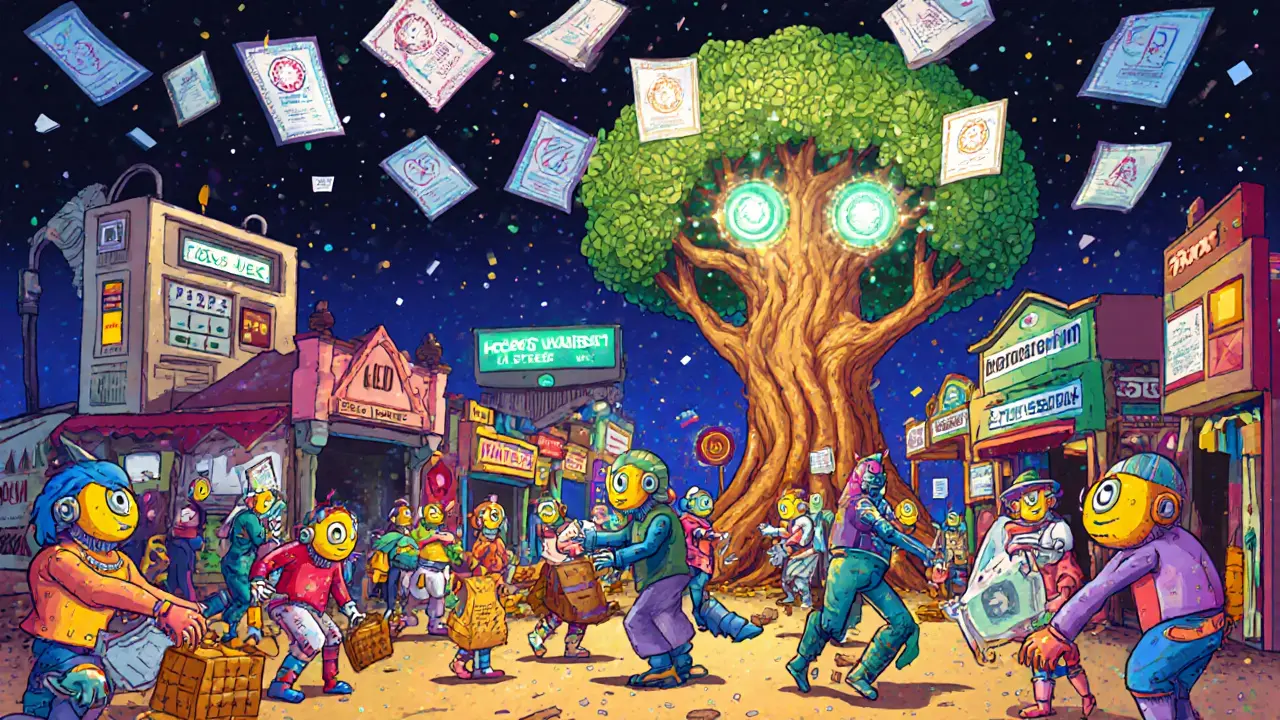
Who’s Winning in 2025?
The market is growing fast. The global AI-blockchain market hit $8.7 billion in Q1 2025 - up 67% from last year. That’s more than double the growth rate of plain blockchain solutions. IBM leads with 22% market share, thanks to its Watson-Hyperledger Fabric combo released in April 2025. Microsoft’s Azure Blockchain with AI tools sits at 18%. But the real disruptors are specialists like Deep Data Insight (9% share), whose platform now powers healthcare systems in 17 countries. Healthcare leads adoption at 32%, followed by finance (28%), supply chain (22%), and government (11%). Why? Because these industries deal with high-stakes data. One wrong record can cost a life. One missed fraud case can cost millions. AI-blockchain doesn’t just improve efficiency - it saves lives and money.What Comes Next?
The next big leap isn’t in speed or security - it’s in sustainability. IEEE’s 2025 roadmap predicts AI-optimized consensus mechanisms will cut blockchain’s energy use by 82% by late 2026. That’s huge. Right now, blockchain mining still draws criticism for its carbon footprint. AI can change that by making consensus algorithms smarter, not greedier. By 2027, IDC predicts 75% of enterprise blockchains will have purpose-built AI components. Right now, it’s 38%. That shift won’t be optional - it’ll be expected. Companies that stick with plain blockchain will look like they’re using fax machines in a Zoom world. The future isn’t blockchain or AI. It’s blockchain with AI. One gives truth. The other gives understanding. Together, they don’t just record the world - they make sense of it.Can AI break blockchain security?
Yes - but only if poorly designed. AI can be tricked with bad data or manipulated inputs. That’s why the AI-blockchain interface layer is now the most common attack point, with 23% of early implementations suffering vulnerabilities there. The fix? Use blockchain to verify every AI decision. If the AI says “approve payment,” the blockchain checks if the data behind that decision has been tampered with. That two-way trust is what makes the system stronger than either tech alone.
Do I need a blockchain if I already use AI?
If your AI is making decisions that affect money, compliance, or trust - yes. AI models can be hacked, biased, or altered without anyone knowing. Blockchain doesn’t fix the AI’s logic, but it locks down the data and decisions. It’s like putting your AI in a sealed, timestamped vault. If your AI just recommends movies or filters spam? Probably not needed. But if it’s approving loans, managing supply chains, or handling medical records? Blockchain is your audit trail.
How long does it take to implement AI-blockchain systems?
Most vendors promise 4 to 6 months. Real-world projects take 8 to 10 months on average. The delay isn’t the tech - it’s the data. Getting legacy systems to talk to each other, cleaning up inconsistent records, and training staff takes time. Companies that spend 22-28% of their budget on data preparation finish faster and see better ROI. Rushing this step guarantees failure.
Which industries benefit most from AI-blockchain?
Healthcare leads because of strict compliance needs and life-or-death accuracy. Financial services follow closely - fraud detection and audit trails are critical. Supply chain companies like Maersk use it to track goods across borders with near-perfect transparency. Government agencies are adopting it for voting, land records, and identity verification. Any industry where trust, proof, and speed matter will benefit.
Is AI-blockchain expensive to run?
Upfront costs are high - hiring experts, training staff, and building integrations can run into millions. But operational costs drop fast. IBM reports 43% less friction in multi-party workflows. Fig Loans cut fraud investigation time by 70%. Keragon’s healthcare platform reduced medical record errors by 41%. Most enterprises see ROI in 11 to 14 months. After that, the system pays for itself through efficiency, fewer errors, and less fraud.
Can small businesses use AI-blockchain?
Yes - but not alone. Right now, only 14% of small and medium businesses have adopted it, mostly because of cost and complexity. But platforms like Deep Data Insight and Microsoft Azure now offer cloud-based AI-blockchain tools with pay-as-you-go pricing. A small pharmacy chain can use it to track drug authenticity without building its own network. The tech is becoming accessible - you just need to start small, like testing one supply chain partner before going full-scale.
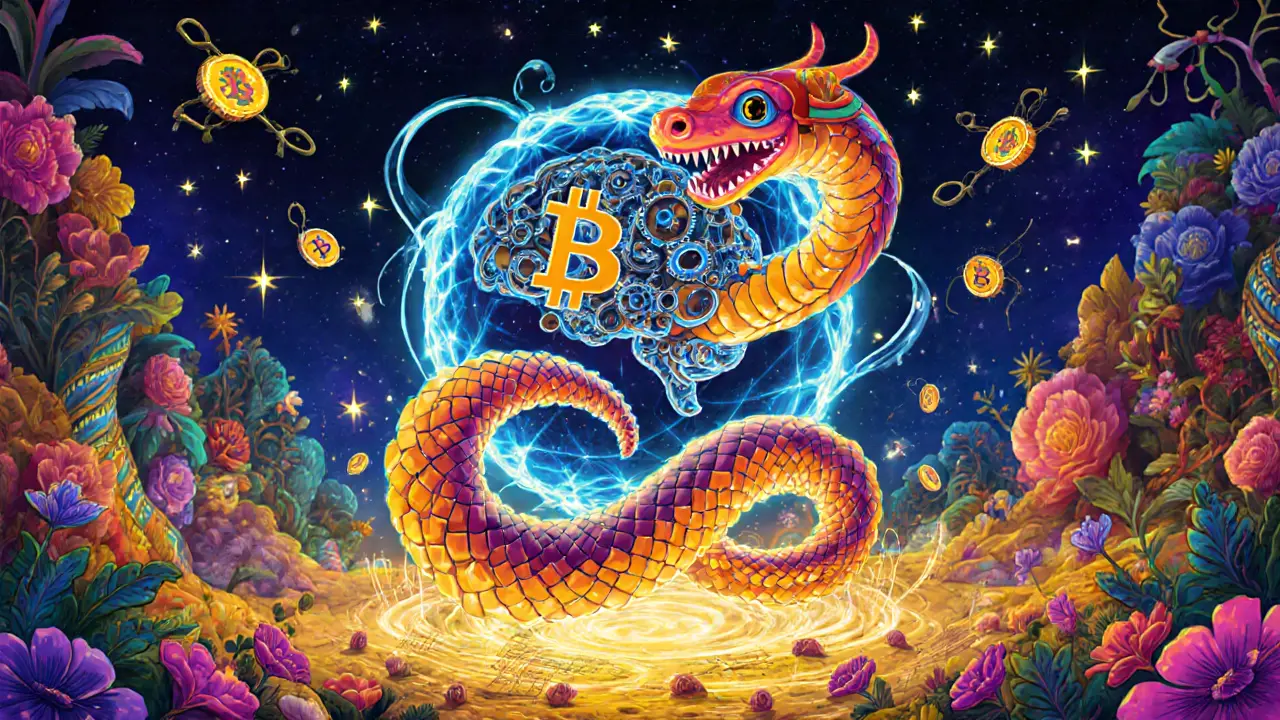
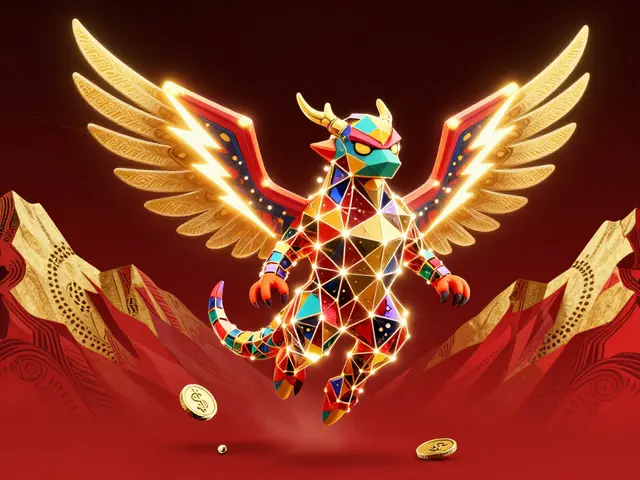


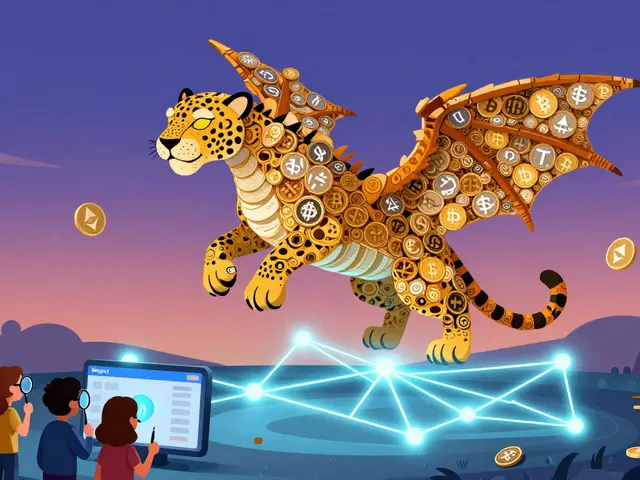


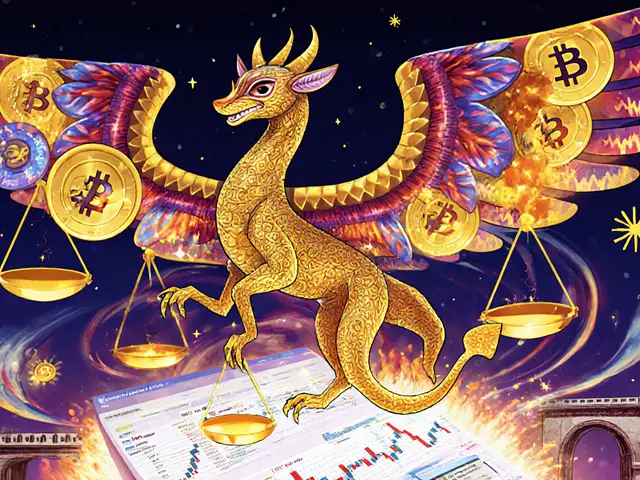
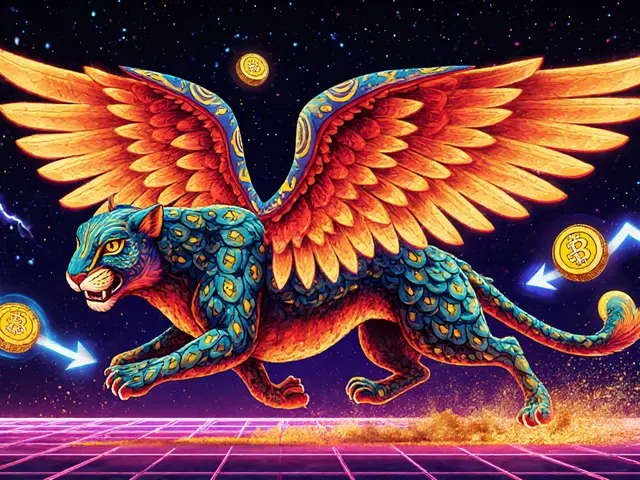

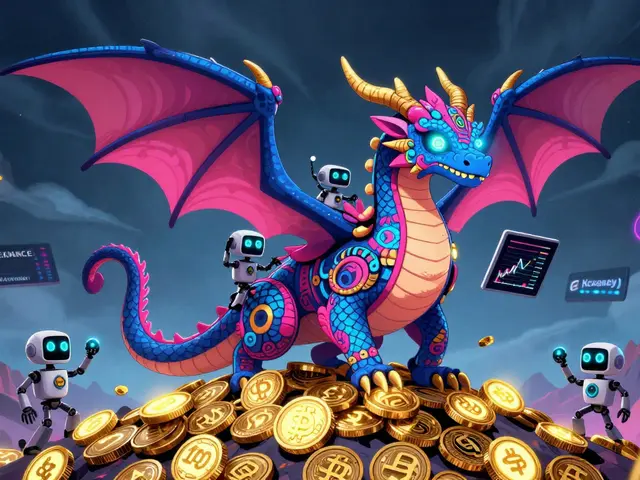
13 Comments
It's fascinating how blockchain and AI are becoming symbiotic rather than competitive. Blockchain gives us truth; AI gives us context. Together, they don't just record history-they interpret it. I've watched this evolution from a distance, and honestly, it feels like we're finally moving beyond digital ledgers into something more alive.
AI on blockchain? More like AI *using* blockchain to gaslight the public. 🤡 They say it's 'trustworthy'-but who built the AI? Who trained it? Who gets to decide what 'normal' looks like? This isn't progress-it's centralized control with a fancy label. They're not securing data-they're locking us in. And don't even get me started on IBM's 'Watson-Hyperledger'… that’s just corporate surveillance with a blockchain cape.
Oh great, another Silicon Valley fantasy where tech bros think they can outsmart human nature. You want to ‘verify every AI decision’ on a blockchain? Cool. Now tell me how you’re gonna stop the same people who coded the AI from also coding the verification layer. This isn’t security-it’s theater. And you think Maersk’s 22-minute verification is impressive? I’ve seen ports in Bangladesh do it manually in 18 with paper and a clipboard. Stop romanticizing automation.
While the technical innovations are undeniably compelling, I believe we must not overlook the ethical imperative underpinning this convergence. The fusion of artificial intelligence with blockchain infrastructure represents not merely a computational advancement, but a profound opportunity to institutionalize accountability at scale. When data provenance is immutable and decision logic is auditable, we are not merely optimizing systems-we are cultivating a new paradigm of digital integrity. This is not merely about efficiency; it is about restoring trust in an age of algorithmic opacity.
OMG I just had a FULL ON EPIPHANY while reading this 😭😭😭 I mean-imagine your insurance claim being processed by an AI that *knows* you’ve been sick for three months because your smartwatch data is on-chain, your doctor’s notes are verified, your pharmacy logs are timestamped, and your bank transaction history confirms you didn’t just buy a yacht-AND it all happens in 22 seconds?? I cried. I literally cried. This is the future we’ve been dreaming of since 2017. Why didn’t anyone tell me this was real?? I’m moving to Iceland to be near a node. 🌍❄️🪙
ai on blcokchain? sounds cool but i think its gonna be a mess. like, what if the ai makes a mistake and the blockchain cant undo it? its immutable right? so like… if it denies your loan because it thinks you're risky but you just got paid in crypto and your bank hasn't updated yet? oops. now you're stuck. also i typoed a lot but u get the point lol
Let’s not conflate scalability with sovereignty. The AI-optimized consensus protocols are not just throughput enhancers-they’re dynamic governance engines. By leveraging federated learning across edge nodes, we’re achieving Byzantine fault tolerance with adaptive weight distribution. This isn’t ‘faster’-it’s emergent resilience. And the data poisoning countermeasures? That’s zero-trust architecture with cryptographic provenance. We’re not patching holes-we’re rearchitecting trust.
ai blockhain is kinda wild but also kinda… obvious? like duh, of course you’d use ai to make blockchains not suck. but why does everything have to be so overhyped? i saw a guy on youtube say this will ‘end fraud’ and i was like bro… i still get spam emails. lol. also i typoed blockchain twice. my bad.
Okay, I’m from India, and let me tell you-this tech could change everything for us! Imagine small farmers verifying crop shipments without middlemen, or microloans being approved based on real-time harvest data, not credit scores. But… can we make this affordable? I’ve seen too many ‘revolutionary’ tools that only work for Silicon Valley. If Deep Data Insight offers a $5/month plan for rural clinics? I’ll start a movement. 🙌🌾
This is precisely the kind of interdisciplinary innovation that deserves thoughtful, deliberate adoption. The alignment of cryptographic immutability with machine learning adaptability is not merely a technical milestone-it is a societal recalibration. We must ensure that accessibility, equity, and transparency are not afterthoughts, but foundational design principles. Otherwise, we risk replicating the very hierarchies we claim to dismantle.
I just love how this feels like sci-fi becoming real!! 🥹✨ I’ve been waiting for this since I first heard about smart contracts in 2018. Now my grandma’s insulin records are on-chain, and her pharmacy gets auto-notified if her levels dip? YES. I’m so proud of humanity right now. Also, I accidentally typed ‘blcokchain’ again… I think my fingers know what I mean before my brain does 😅
AI on blockchain is just another buzzword salad for VCs. The real issue isn't scalability-it's that nobody understands either technology well enough to implement it responsibly. The ‘92% faster’ claims? Probably cherry-picked benchmarks. And ‘saves lives’? That’s emotional manipulation dressed as innovation. This isn’t progress. It’s performance.
It’s funny-we built blockchain to remove intermediaries, and now we’ve built AI to become the ultimate intermediary. The ledger doesn’t lie, but the AI that interprets it? It’s trained on human data. And humans? We’re messy, biased, inconsistent. So we’re outsourcing judgment to a system that’s only as wise as the data it swallowed. Maybe the real question isn’t ‘can AI enhance blockchain?’… but ‘can we trust ourselves enough to let it try?’